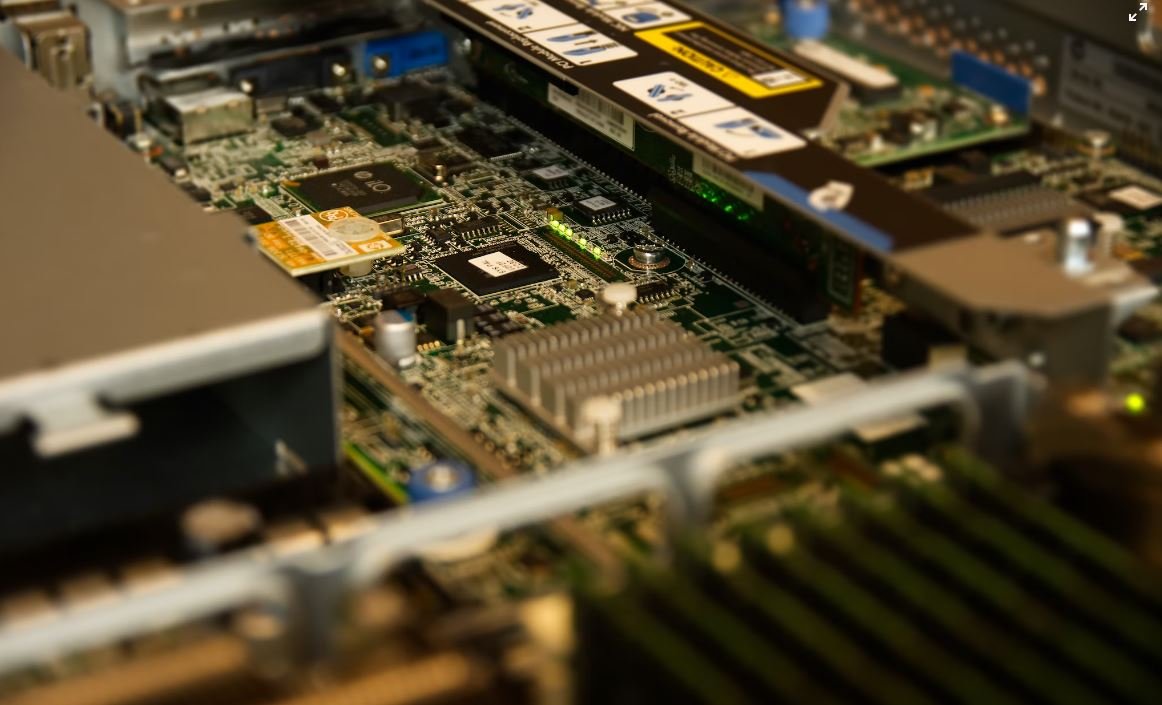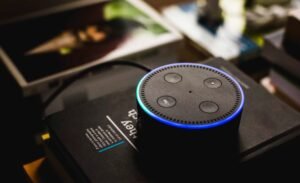List of AI Products
Artificial Intelligence (AI) has revolutionized many industries in recent years, providing enhanced efficiency, personalization, and automation. With a wide range of innovative AI products available on the market, businesses can optimize their operations and deliver better customer experiences. In this article, we will explore a comprehensive list of AI products that are making waves across various sectors.
Key Takeaways
- AI products are transforming industries through enhanced efficiency and automation.
- These products offer personalization and improved customer experience.
- The list includes a variety of AI products for different sectors.
1. AI Chatbots
AI chatbots are computer programs that use natural language processing and machine learning algorithms to engage in human-like conversations. These chatbots can handle customer inquiries, provide product recommendations, and offer personalized assistance. Businesses can use AI chatbots to improve their customer support and streamline communication processes. *Chatbots are gaining popularity due to their ability to handle large volumes of inquiries effectively.*
2. AI Virtual Assistants
AI virtual assistants, such as Amazon’s Alexa, Apple’s Siri, and Google Assistant, are becoming increasingly common in households and workplaces. These assistants use AI algorithms to understand and respond to voice commands, operate smart devices, and perform various tasks. They can help users with managing calendars, setting reminders, playing music, answering questions, and more. *AI virtual assistants bring convenience and hands-free interaction to our daily lives.*
3. AI Content Generation Tools
AI content generation tools leverage natural language processing and machine learning to automate the creation of textual content. These tools can generate articles, product descriptions, social media posts, and other forms of written content. They can save time and effort for businesses by quickly producing high-quality, engaging content. *AI content generation tools provide a creative solution to content production challenges.*
4. AI Facial Recognition Systems
AI facial recognition systems utilize computer vision techniques and deep learning algorithms to identify and verify individuals based on their facial features. These systems are widely used for security purposes, access control, and identification management. They can enhance security measures and provide a convenient and efficient way to authenticate individuals. *AI facial recognition systems offer advanced security and seamless user experience.*
5. AI-Based Marketing Analytics Tools
AI-based marketing analytics tools help businesses analyze vast amounts of data to understand customer behavior and optimize marketing efforts. These tools can predict customer preferences, segment target audiences, recommend personalized offers, and measure campaign performance. They provide valuable insights that aid in making data-driven marketing decisions. *AI-based marketing analytics tools enable businesses to derive actionable insights from their data.*
| Product | Key Features | Industry |
|---|---|---|
| ChatbotX | Advanced natural language processing, context-aware responses, integration with major messaging platforms | Customer Support, E-commerce |
| AssistantAI | Voice command recognition, device integration, personalized recommendations | Smart Home, Personal Assistant |
| ContentGenius | Article generation, social media post creation, natural language customization | Content Marketing, E-commerce |
6. AI-Powered Customer Relationship Management (CRM) Systems
AI-powered CRM systems leverage machine learning to analyze customer data, automate tasks, and provide personalized recommendations. These systems help businesses improve customer relationships, track sales activities, and enhance the overall sales process. They can predict customer behavior, identify potential leads, and optimize sales strategies. *AI-powered CRM systems enable businesses to better understand and serve their customers.*
7. AI Image and Video Analysis Tools
AI image and video analysis tools use computer vision algorithms to analyze and interpret visual content. These tools can classify images, detect objects, recognize patterns, and extract relevant information. They find applications in various domains, including healthcare, automotive, and surveillance. *AI image and video analysis tools unlock valuable insights from visual data.*
| Product | Key Features | Industry |
|---|---|---|
| ImageAnalyzer | Object detection, image classification, real-time analysis | Retail, Security |
| VideoInsight | Video summarization, action recognition, anomaly detection | Surveillance, Analytics |
| MedicalVision | Disease detection, medical image analysis, data-driven diagnostics | Healthcare, Medical Research |
8. AI-Powered Recommendation Systems
AI-powered recommendation systems analyze user behavior and preferences to provide personalized recommendations. These systems are widely used in e-commerce, media streaming platforms, and content delivery services. By examining browsing history, purchase patterns, and similar users’ data, they suggest relevant products, services, or content. *AI-powered recommendation systems increase user engagement and drive sales.*
9. AI Robotic Process Automation (RPA) Software
AI robotic process automation software uses AI algorithms to automate repetitive tasks and processes. These solutions can mimic human actions and interact with various digital systems and interfaces. By eliminating manual work, businesses can increase productivity, reduce errors, and free up employees’ time for more strategic tasks. *AI RPA software streamlines operational efficiency and improves accuracy.*
10. AI-Powered Cybersecurity Tools
AI-powered cybersecurity tools use machine learning to detect and respond to cybersecurity threats. These tools can monitor network traffic, identify anomalies, and prevent data breaches. They can analyze vast amounts of data in real-time to identify patterns and detect potential cyber threats. *AI-powered cybersecurity tools provide proactive protection against evolving cyber threats.*
As technology continues to advance, AI is driving innovation across various industries. The list of AI products mentioned above provides just a glimpse of the broad spectrum of applications AI offers. Whether it’s improving customer experience, automating processes, or enhancing security measures, AI products have the potential to reshape numerous sectors.
References:
- “Chatbot.” Investopedia, www.investopedia.com/terms/c/chatbot.asp.
- “What Are AI-Generated Articles?” Yababooks, yababooks.com/what-are-ai-generated-articles/.
- “The Benefits of AI for Security.” BusinessBlogs, www.businessblogs.co.uk/the-benefits-of-ai-for-security/.

Common Misconceptions
AI Products
Artificial intelligence (AI) has become a popular buzzword in recent years, gaining attention across various industries. However, there are several common misconceptions that people have around AI products. Let’s explore and debunk some of these misconceptions.
- AI products can fully replicate human intelligence.
- AI products are only useful for large corporations.
- AI products will replace human jobs.
AI Products Can Fully Replicate Human Intelligence
One common misconception about AI products is that they can fully replicate human intelligence. While AI has advanced significantly in recent years, it still cannot match the complexity and nuances of human intelligence. AI products are designed to perform specific tasks and make decisions based on algorithms and data, but they lack the cognitive abilities, emotions, and creativity that humans possess.
- AI products are limited by their programmed algorithms.
- AI products don’t have intuition or common sense.
- AI products can’t handle unexpected situations as effectively as humans.
AI Products Are Only Useful for Large Corporations
Another misconception is that AI products are only beneficial for large corporations with extensive resources. In reality, AI products can be valuable tools for businesses of all sizes and industries. Small businesses can leverage AI to automate repetitive tasks, improve customer service, and enhance decision-making. AI products can also help individuals in their daily lives, from virtual assistants to personalized recommendations.
- AI products can be scaled to fit the needs and budget of small businesses.
- AI products offer opportunities for innovation and competitive advantage.
- AI products can provide insights and predictions that benefit individuals.
AI Products Will Replace Human Jobs
One of the biggest fears surrounding AI products is that they will replace human jobs and lead to widespread unemployment. While AI automation may eliminate certain repetitive jobs, it also creates new opportunities and roles for human workers. AI products are designed to augment and enhance human capabilities rather than replace them. They can help automate tedious tasks, improve productivity, and free up time for employees to focus on higher-value work.
- AI products can assist employees by automating mundane and repetitive tasks.
- AI products can empower workers with data-driven insights and decision-making support.
- AI products can create new job roles and opportunities in AI development and maintenance.
Conclusion
These common misconceptions around AI products often stem from a misunderstanding of their capabilities and potential. While AI has its limitations, it also offers numerous benefits and opportunities across various domains. It is essential to have a realistic understanding of AI products to fully leverage their potential and avoid unnecessary concerns.

AI Products in the Healthcare Industry
In recent years, artificial intelligence (AI) technology has revolutionized various industries, including healthcare. Below are ten AI products that have significantly impacted patient care and medical research.
Robotic Surgical Systems
Robotic surgical systems, such as the da Vinci Surgical System, use AI algorithms to assist surgeons during minimally invasive procedures. They provide enhanced precision and control, resulting in reduced recovery times for patients.
Diagnostic Support Tools
Diagnostic support tools, like IBM Watson for Oncology, analyze medical records and research papers to aid doctors in making accurate diagnoses. These tools offer evidence-based recommendations and assist in personalized treatment plans.
Virtual Healthcare Assistants
Virtual healthcare assistants, such as Amazon’s Alexa and Google Assistant, use AI to answer health-related queries, provide medication reminders, and schedule medical appointments. They empower patients to access healthcare information conveniently.
Drug Discovery Platforms
AI-powered drug discovery platforms, like Atomwise, use machine learning to analyze huge amounts of data, accelerating the drug discovery process. These platforms have the potential to revolutionize the development of new medications.
Remote Patient Monitoring Systems
Remote patient monitoring systems, such as Medtronic’s Guardian Connect, use AI to collect and analyze data from wearable devices, enabling healthcare professionals to remotely monitor patients’ vital signs and intervene if necessary.
AI-Powered Imaging Analysis
AI-powered imaging analysis tools, like Aidoc, assist radiologists in detecting abnormalities in medical scans. By harnessing deep learning algorithms, these tools provide faster and more accurate diagnoses, ultimately improving patient outcomes.
Automated Electronic Health Records
Automated electronic health records (EHR) systems, such as Cerner, employ AI algorithms to organize and analyze patient data, reducing paperwork for healthcare providers. They improve data accuracy and facilitate seamless information exchange.
AI-Enhanced Mental Health Apps
AI-enhanced mental health apps, like Woebot, use natural language processing to provide personalized therapy and support. These apps offer users a convenient and accessible way to manage their mental health and well-being.
AI-Driven Precision Medicine
AI-driven precision medicine platforms, like Tempus, analyze large-scale genomic and clinical data to guide personalized treatment plans. These platforms help healthcare professionals tailor therapies to individual patients, improving treatment efficacy.
Smart Wearables for Health Tracking
Smart wearables, such as Fitbit and Apple Watch, utilize AI algorithms to monitor various health metrics. They track physical activity, heart rate, and sleep patterns, empowering individuals to take control of their well-being.
In conclusion, AI products have transformed the healthcare industry by improving diagnostics, enhancing treatment efficacy, and facilitating remote monitoring. These innovative technologies hold great promise for the future of patient care, enabling more precise and personalized healthcare interventions.
Frequently Asked Questions
What are AI products?
What are AI products?
AI products refer to the products that utilize artificial intelligence technologies to perform various tasks and provide intelligent solutions. These products could range from virtual assistants and smart speakers to autonomous vehicles and recommendation systems.
How do AI products work?
How do AI products work?
AI products work by utilizing algorithms and machine learning techniques to analyze data, learn patterns, and make predictions or decisions. They rely on vast amounts of data and advanced computational power to improve their performance over time.
What are some examples of AI products?
What are some examples of AI products?
Some examples of AI products include voice assistants like Amazon Alexa and Google Assistant, autonomous vehicles such as Tesla cars, smart home devices like Nest thermostats, and recommendation systems like those used by Netflix and Spotify.
Are AI products safe to use?
Are AI products safe to use?
In general, AI products are safe to use. However, like any other technology, there can be risks associated with their usage. These risks can include data privacy concerns, biases in algorithms, and potential job displacement. Manufacturers and developers strive to address these issues and ensure the safety of their AI products.
What are the benefits of using AI products?
What are the benefits of using AI products?
Using AI products can bring numerous benefits, such as enhanced efficiency and productivity, improved decision-making, personalized experiences, automation of repetitive tasks, and the ability to analyze and interpret large amounts of data quickly. AI products also have the potential to revolutionize various industries and lead to advancements in healthcare, transportation, and more.
Can AI products replace human jobs?
Can AI products replace human jobs?
AI products can automate certain tasks and roles traditionally performed by humans, potentially leading to job displacement. However, they also create new opportunities and demand for jobs that require expertise in AI technologies. The overall impact on employment is a topic of ongoing debate and research.
How are AI products transforming industries?
How are AI products transforming industries?
AI products are transforming industries by introducing automation, predictive analytics, and intelligent decision-making capabilities. They are being used in healthcare for disease diagnosis, in manufacturing for quality control, in finance for fraud detection, and in retail for personalized recommendations. These advancements are driving efficiency, innovation, and competitive advantage in various sectors.
How can I choose the right AI product for my needs?
How can I choose the right AI product for my needs?
To choose the right AI product, consider your specific needs and requirements. Research different products available in the market, read reviews and comparisons, and evaluate their features, compatibility, and support. It’s also helpful to understand your desired use case and the potential benefits the AI product can bring to your personal or professional life.
What are the limitations of AI products?
What are the limitations of AI products?
AI products have certain limitations, such as their reliance on large amounts of data, the potential for biases in algorithms, the lack of common sense understanding, and the inability to fully replicate human-like intelligence. They may also face challenges when dealing with unexpected or novel situations. Ongoing research and development aim to address these limitations and push the boundaries of AI technology.





